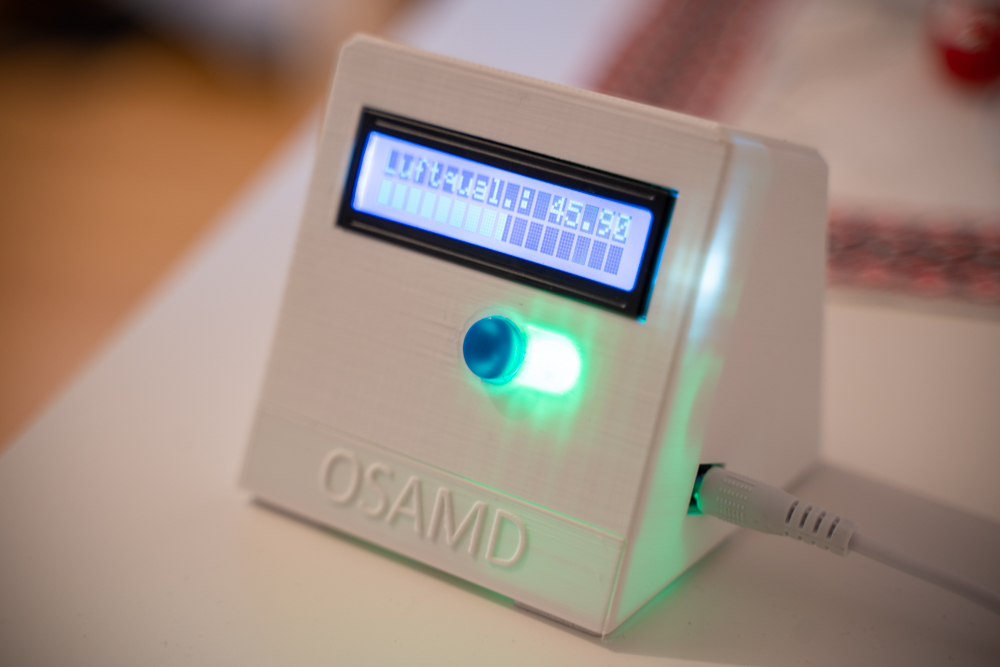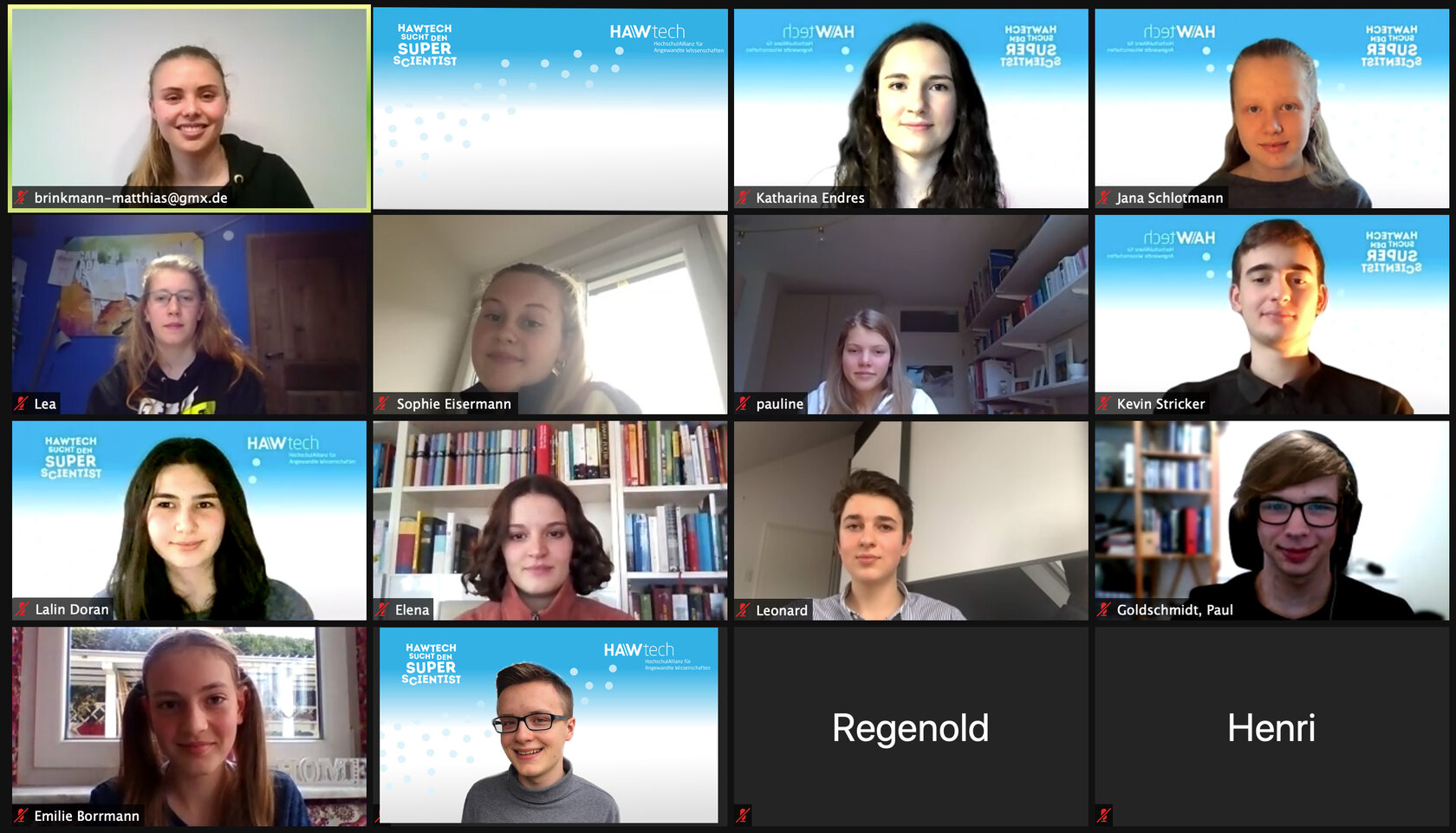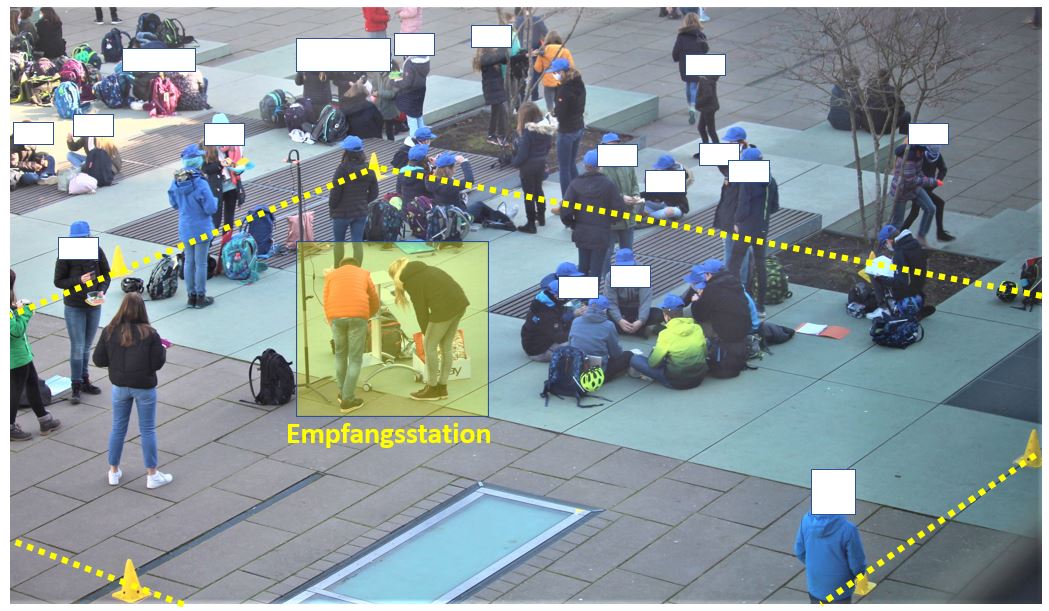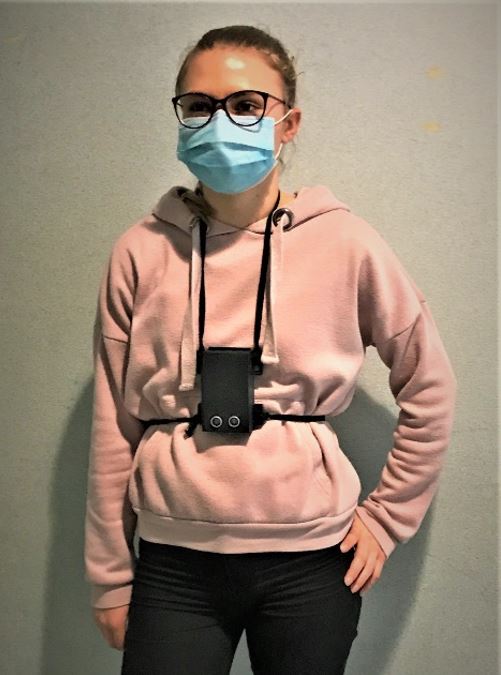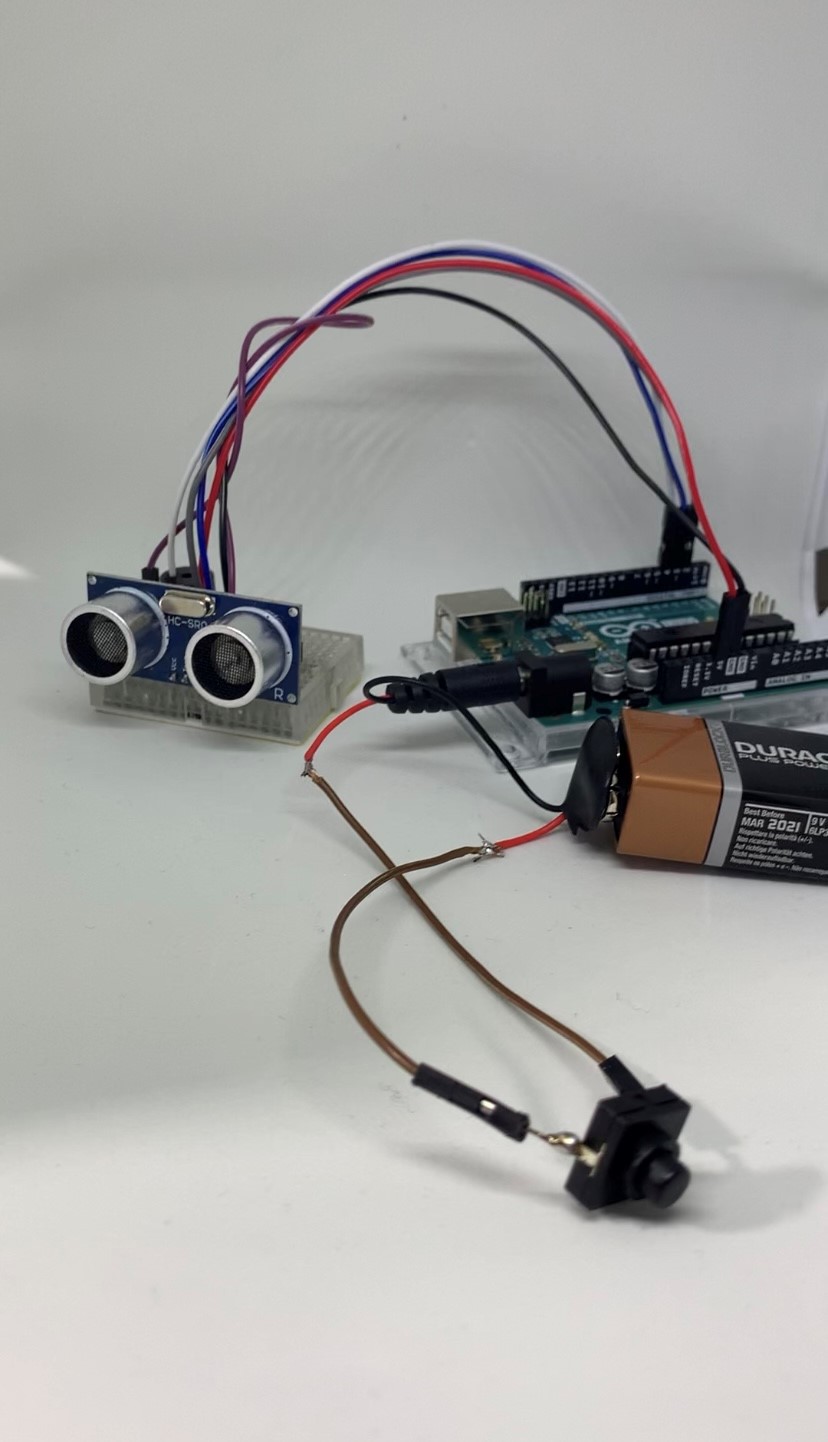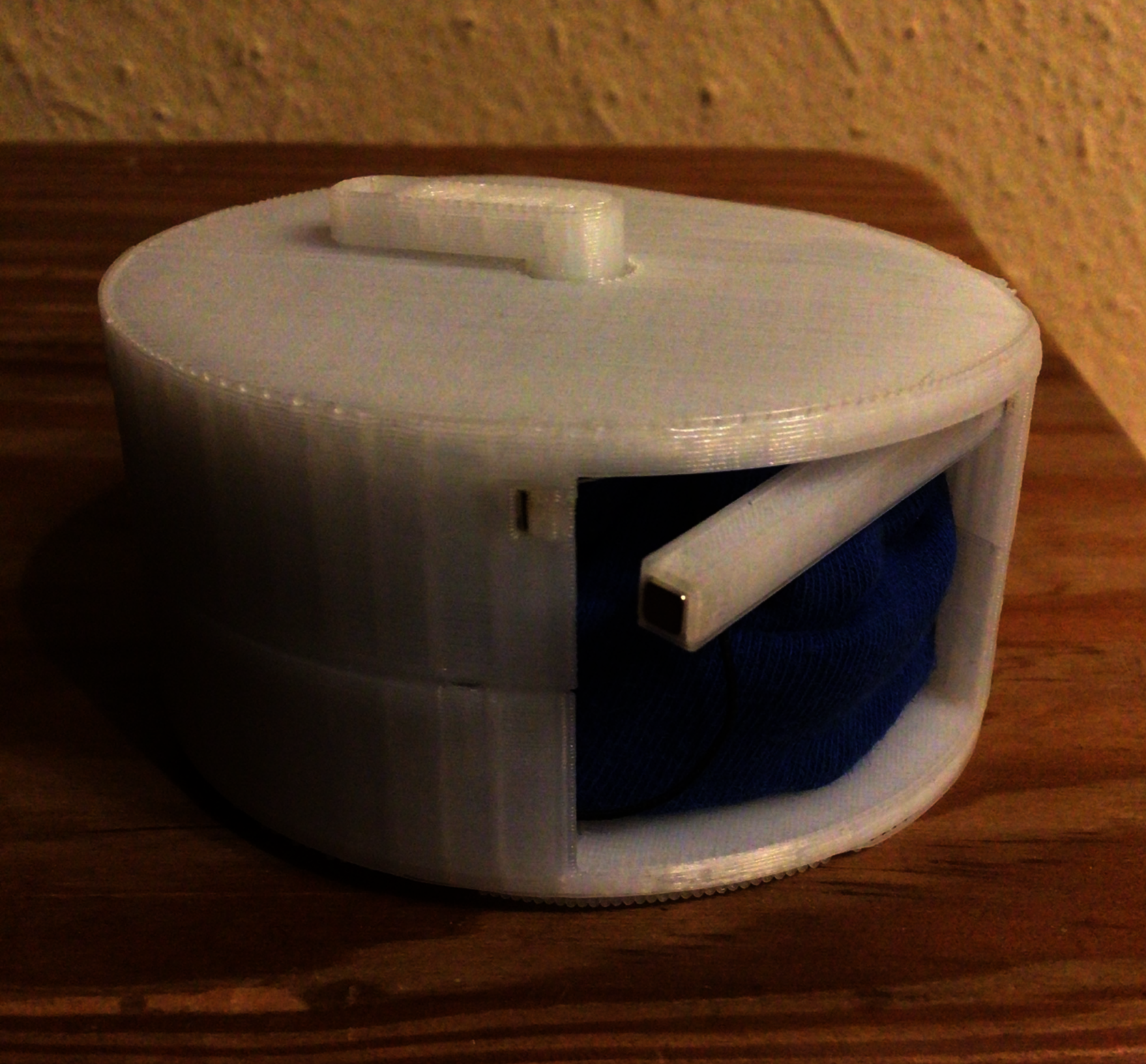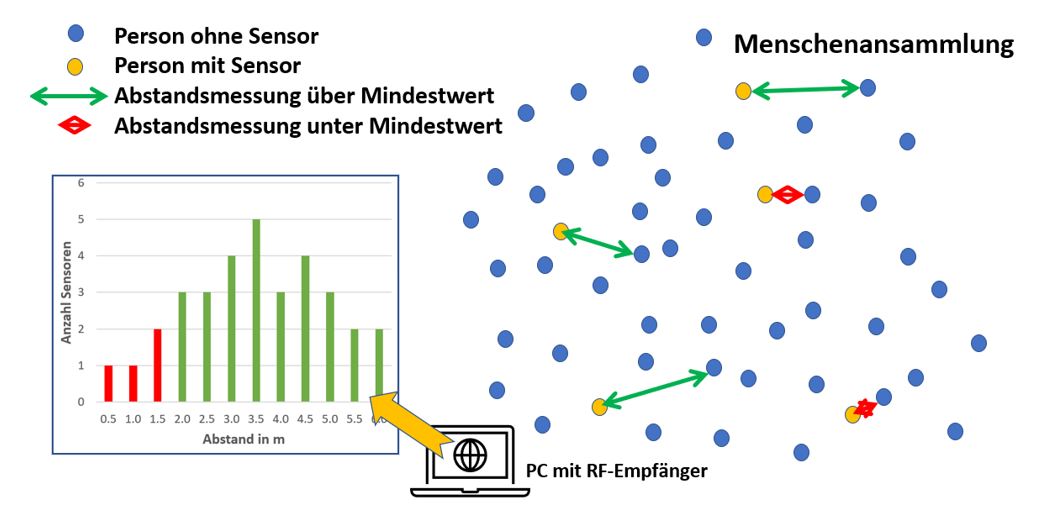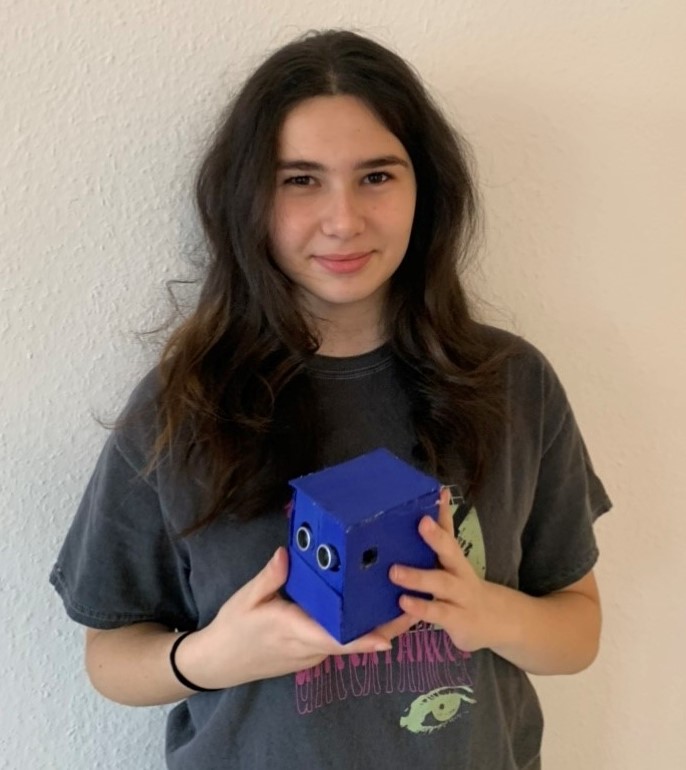From distance measurements in crowds to an extra pair of eyes: These are HAWtech's Super Scientists
Six outstanding projects emerge victorious from HochschulAllianz für Angewandte Wissenschaften school competition
Innovation: "Distance eye for the visually impaired" by Lalin Doran. Conceived and implemented, the project is an additional "eye" for visually impaired people, similar to a distance warning device. The ultrasonic sensor measures a distance of 40 cm to other people; if the distance is too close, a warning signal sounds. With the distance eye, people with visual impairments can be reliably warned of too close contact and thus protected. This innovative project impressed the jury both with its very good technical implementation and with the inclusive thinking behind the development of the idea.
Mechatronics: "Low-Budget Air Quality Sensor for Better Air in Schools" by Paul Goldschmidt. Measuring good air quality and low aerosol levels is central in pandemic times, especially for effective ventilation in schools or even offices. The air quality measuring station convinced the jury due to the independent reproduction of existing sensors (from the circuit board to the housing) as an open source device (https://paul-goldschmidt.de/portfolio/osamd/) as well as the verifiable effectiveness for an extremely low product price of less than ten euros in production. This as well as the immediate usability show the above-average benefit of this product.
Sustainability: "Disinfecting Hand Cream" by Sophie Eisermann & Pauline Regenold. The benefit of the hand cream is the donation of moisture while disinfecting the hands. The ingredients consist of environmentally friendly components, and the overall concept focuses on sustainability, from production to marketing. The jury emphasized the DIY principle of the project, as the hand cream is put together independently at home. In this way, one also gets an exact impression of the ingredients and can customize the composition. In addition, the incentive by the cream is praised by the jury to animate to disinfect the hands.
Design: "Functional Chair" by Leonard Oehl. Designed and built as an exceptional armchair for relaxed homeschooling, it fulfills many functions useful when working from home, including adjustable table and footrest. In addition, the armchair offers various compartments for electronic equipment as well as an electronic charging station for a smartwatch, in addition to power outlets. The jury underlines the originality and high quality of implementation in this piece of furniture equipped with technology.
Technology in everyday life: "Mask Button" by Lea Feiler & Elena Steimer. So that the mouth-nose protection can be stored appropriately and not to look for in places such as bags or car footwells, the Mask Button, a practical sleeve with coil, was designed and manufactured using biological plastics. This storage for the mouth-nose protection that has become so important in our everyday life convinced the jury, precisely because the very good implementation was done with the help of a 3D printer.
In addition, the jury awarded two further prizes, the HAWtech overall prize, donated by the Darmstadt-based energy company ENTEGA AG, and the special prize for an innovative girls' project:
HAWtech Overall Prize: "Development of operating and simulation software" as part of the joint project "System for ultrasonic distance measurement in crowds" by Lisa Brinkmann, Paul Kallis & Kevin Stricker and "Distance eye for the visually impaired" by Lalin Doran
Special Award: "Development of a mobile sensor unit" as part of the collaborative project "System for ultrasonic distance measurement in crowds" by Emilie Borrmann, Katharina Endres & Jana Schlotmann
The HAWtech overall prize is awarded to two projects. "Both show a broad engagement with technical as well as social aspects of distance measurement and compliance with minimum distances, also considering disadvantaged groups. They both show a high to very high degree of complexity in the implementation of the idea. They are both exceptional projects with a great social added value that is directly recognizable and applicable," according to the jury's statement.
All awarded projects receive 200 euros each, the HAWtech prize as well as the special prize for girls are endowed with another 200 euros. Prof. Stengler congratulates in the name of the jury all winners*innen to their trend-setting projects and thanks beside also all not distinguished participants for their original competition contributions. He emphasizes: "The competition confirms our commitment to recognizing and promoting interest in STEM subjects at an early stage, in order to contribute to strengthening the innovative capacity of the regions in the long term by developing the potential of young people.
The jury
- Prof. Dr. Ralph Stengler, President of Darmstadt University of Applied Sciences (h_da)
- Prof. Dr. Katrin Baumann, Department of Mechanical and Plastics Engineering (h_da)
- Prof. Dr. Thomas Betz, Department of Electrical Engineering and Information Technology (h_da)
- Prof. Dr. Yvonne Haffner, Department of Social Work (h_da)
Strong regions, strong universities - connect interests
"Strong regions, strong universities - connecting interests". Under this guiding principle, six leading universities in the field of engineering sciences founded the nationwide "HochschulAllianz für Angewandte Wissenschaften" (HAWtech) in 2009. Members of this alliance are Aachen University of Applied Sciences, Berlin University of Applied Sciences, Darmstadt University of Applied Sciences, Dresden University of Applied Sciences, Esslingen University of Applied Sciences and Karlsruhe University of Applied Sciences.
